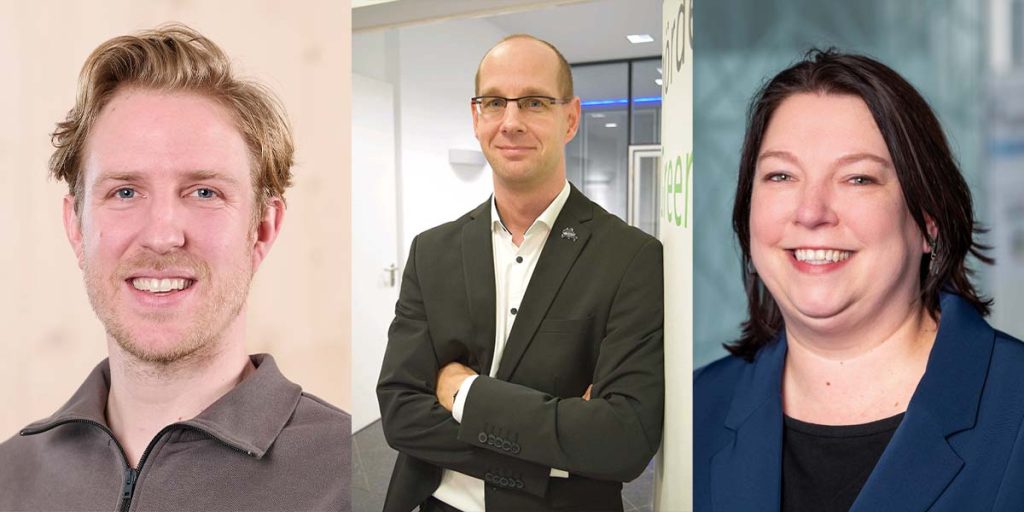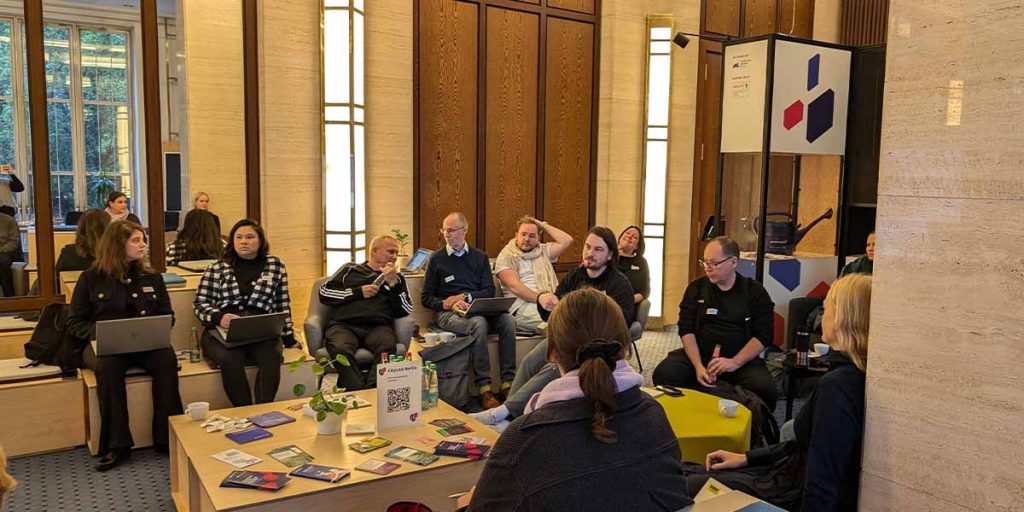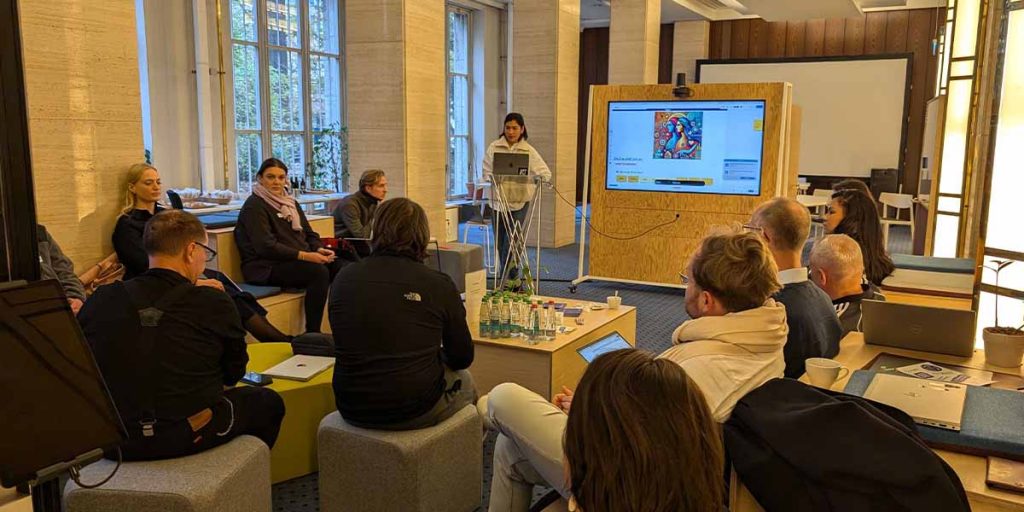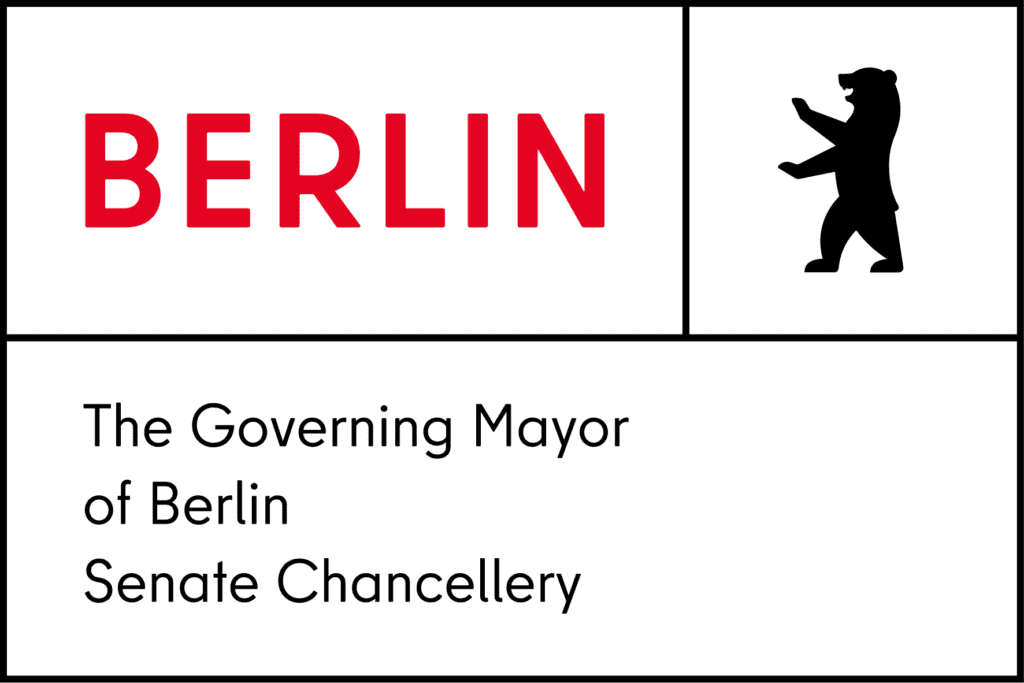What does modern work culture in the Berlin administration look like? Collaborative software solutions have become indispensable in the daily operations of many companies, yet they are often not utilized in public administrations. Now, openDesk aims to change that. Developed by the Center for Digital Sovereignty (ZenDiS) as an open-source project, this collaboration suite promises to address classic office challenges such as document storage, file sharing, project management, and chat functionality—all within an open and secure platform.
The CityLAB Berlin is currently conducting a two-week user acceptance test in collaboration with the IT Service Center (ITDZ) Berlin to evaluate how well openDesk meets the needs of Berlin’s administrative staff.
In an interview, Daniela Schacht and Alexander Peschel from the Open Source Competence Center (OSK) at ITDZ Berlin, along with Markus Sperl from CityLAB Berlin, provided insights into the project.

Alexander, what role does open-source software currently play in the Berlin administration, and what potential do you see for the future?
Alexander: “The role of open source in the Berlin administration still has much potential. About ten years ago, there was an initial active open-source movement, but the timing wasn’t right. Today, as topics like digital sovereignty and independence from large monopolists become increasingly important, we see that open-source software can play a key role. Especially regarding adaptability, flexibility, and independence, open source can offer many advantages for the Berlin administration.”
In what way?
Alexander: “The willingness to use open source more intensively is present. We notice this as more and more inquiries are directed to the Open Source Competence Center. Here at CityLAB, with the three test groups from district offices, senate administrations, and the senate chancellery, we see that inter-agency collaboration works well and that open-source software can play an important role. The ability to tailor the software to the specific needs of the Berlin administration is one of the strengths of open source.”
Daniela, how do you envision the Berlin administration in ten years, especially concerning open source?
Daniela: “When I imagine the Berlin administration in ten years, I hope we’re not writing so many emails or sending PowerPoint presentations, but rather developing new, innovative working methods. My ideal vision isn’t to replace all existing tools with open-source solutions but to truly find a different way of working. For me, open source is a way to create choice.”
What does that mean specifically?
Daniela: “It’s about considering in advance how switching providers or accessing data might look and planning these aspects from the beginning. It’s not about showing distrust toward major providers but about making more sovereign decisions and integrating open source as part of the portfolio. I hope that through open source, we can act more flexibly and independently.”
openDesk is one of many open-source solutions on the market. Markus, you lead the Smart City Test Lab project; why did you and ITDZ Berlin decide to test this particular tool?
Markus: “openDesk is an interesting case in many ways. On one hand, it doesn’t try to reinvent the wheel but works with long-established, proven open-source components, promising good functionality. Solutions like OpenProject, Element, and Nextcloud are already tested. On the other hand, and this isn’t always common in open-source projects, there’s a clear focus on user-friendliness. This moves open source out of the perception of being a ‘techy tinkering corner’ and shows that tools usable by everyone do exist. And above all, openDesk addresses various pain points we’ve been aware of in the Berlin administration for some time—such as a functional, shared storage and simultaneous editing of documents.”
And what can we understand by user acceptance tests?
Markus: “Testing innovative solutions is part of our established portfolio as an innovation lab—the test drive analogy fits well here. To evaluate whether products on the market are suitable and helpful for users, we’ve developed formats where these users can try out applications themselves and assess them. Often, as a small organization, we can procure more quickly, then focus on usability and purpose fulfillment during the accompanied test—if the assessment is positive, the next, more time-consuming steps of ICT implementation can be undertaken when one is truly certain.”
Daniela: “The idea of designing the tests from the user perspective is really exciting. Normally, you’d create long requirement catalogs from specialized teams who have their own wishes and ideas, but we’ve decided to keep the tests open and let the users themselves decide what works for them and what doesn’t. We want to see practically which functions are useful and where there’s still potential for improvement. The collaboration with CityLAB was special for us because you have innovative methods that we wouldn’t find in other areas.“


Finally, what’s next with testing and open source, or openDesk for the Berlin administration?
Markus: “From a service design perspective, we were especially interested in how to design the test to both motivate users to try out the full range of functions and generate sufficiently precise feedback to reach a well-founded conclusion.
If we’re honest—office applications aren’t the most exciting thing one can imagine, especially if you already have a setup you’re used to. We chose the approach of a playful access and elaborate design of test materials: individual functions/tools are conceptualized as stations of a journey, where testers can collect points for things they try out with openDesk. The winners can forever adorn themselves with glory and honor (and receive a small token). That’s the plan: I’m curious to see if everything works out as we envisioned.”
In the coming weeks, the feedback from the user acceptance tests will be evaluated and the results shared with the OSK and the Berlin administration.
This represents a significant step for the administration: open source could not only bring digital sovereignty but also a modern, flexible working style. We’re eager to see the testers’ conclusions after two weeks.
